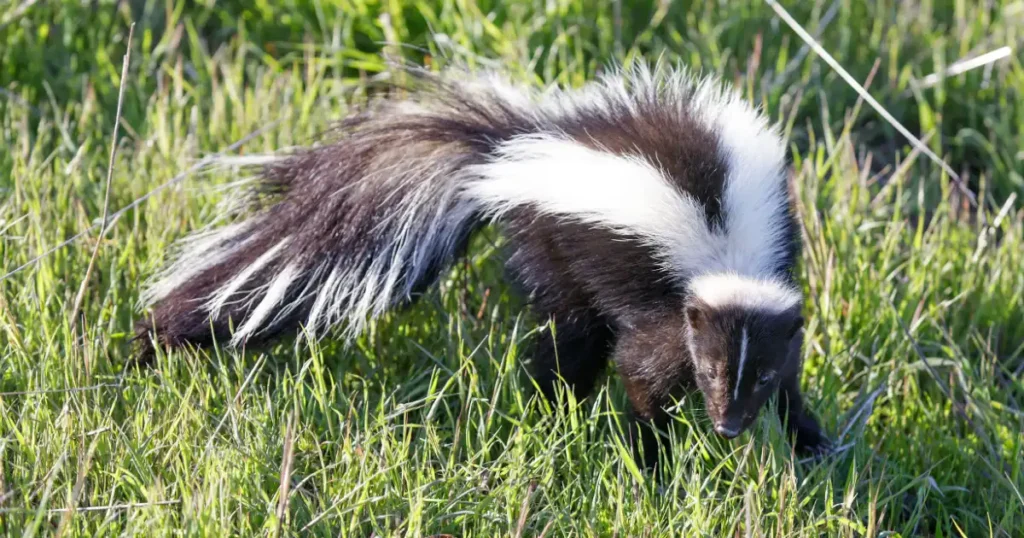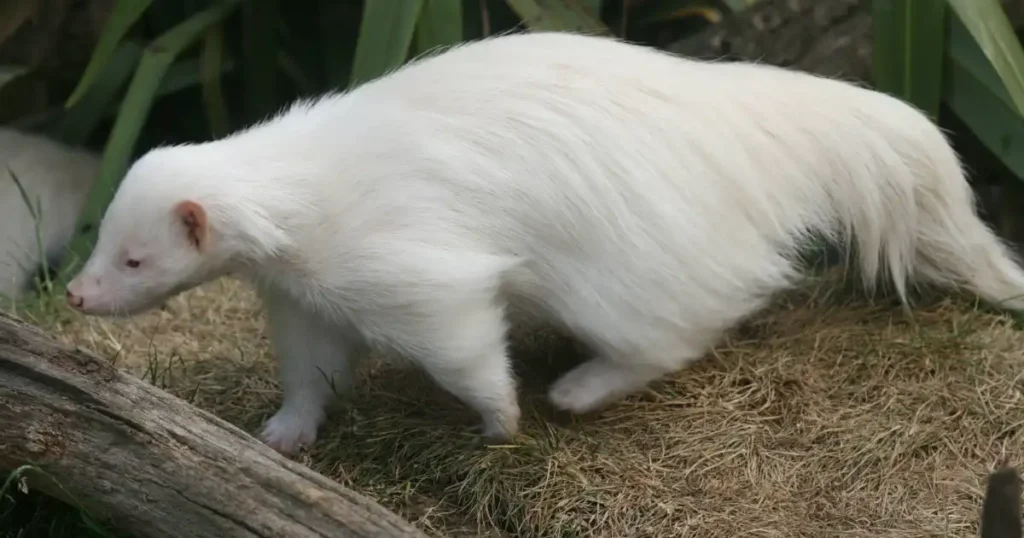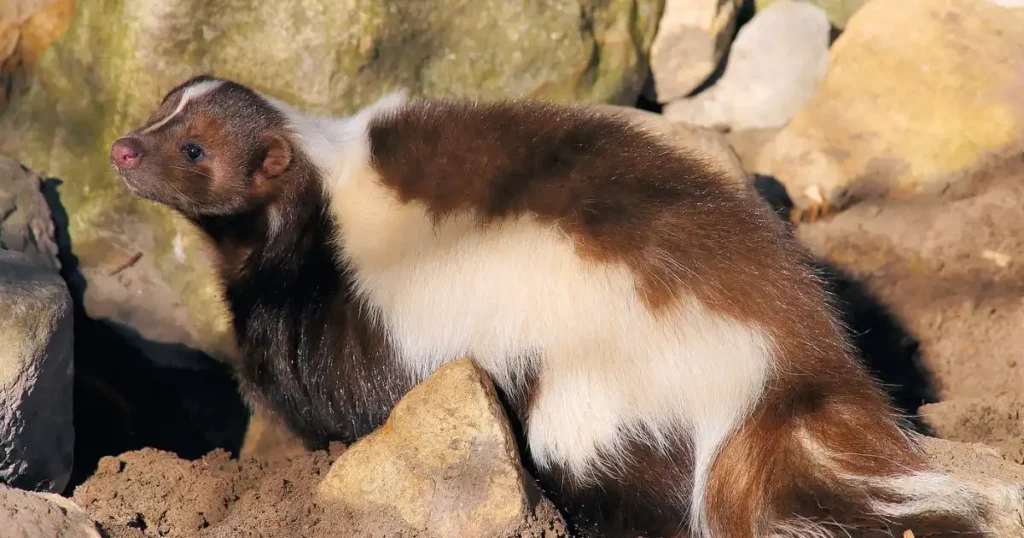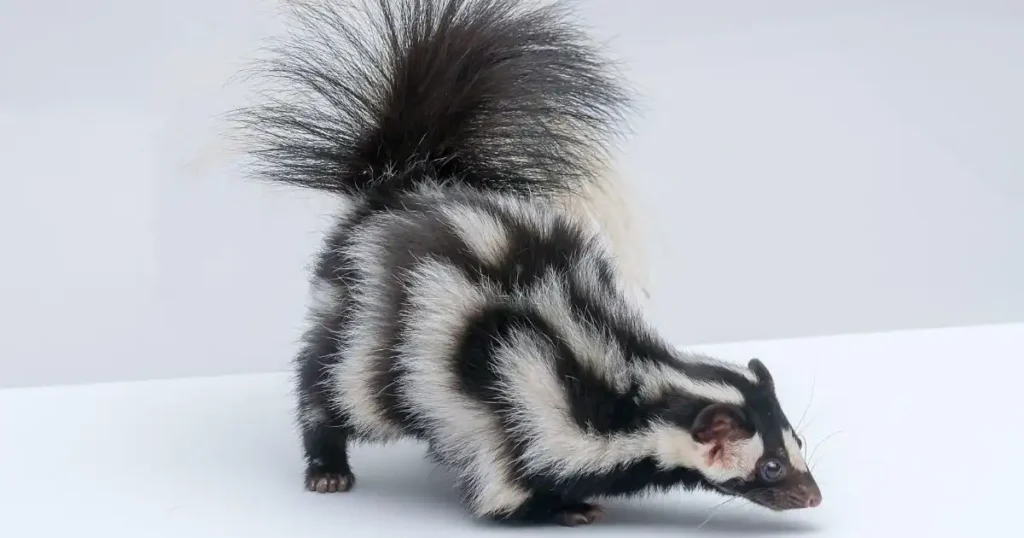
In the world of exotic pets, pet skunks have garnered attention not just for their unique personalities but also for their striking colors. From classic black and white patterns to rare albino variants, the diversity in skunk coat colors is fascinating. This guide delves deep into the various colors of pet skunks, offering insights into their genetics, care, and what makes them such intriguing companions.
Skunks stand out among exotic pets not only for their distinctive colors but also for their curious and affectionate nature when raised in a domestic environment. Despite their reputation in the wild for defensive spraying, pet skunks can be trained to exhibit friendly and playful behaviors, making them surprisingly interactive companions. Their ability to form strong bonds with their human families adds to their appeal as pets that bring both charm and companionship into households.

Among pet skunks, the classic black and white coat pattern is perhaps the most recognizable. These skunks typically feature jet-black fur with one or more white stripes running down their back and tail. The distribution and width of these stripes can vary, giving each skunk a unique appearance. This pattern, reminiscent of their wild counterparts, is a testament to their natural beauty and adaptability.

Albino skunks are exceedingly rare and prized for their striking appearance. Unlike their black and white counterparts, albino skunks lack melanin pigment, resulting in a pure white coat and pink eyes. The rarity of albino skunks makes them a coveted choice among exotic pet enthusiasts, although their care requires special attention due to their sensitivity to sunlight and potential health concerns associated with albinism.

A less common but equally charming variant is the chocolate and white skunk. These skunks exhibit a deep chocolate brown coat with contrasting white markings, which can range from a few patches to a predominantly white belly and face. The rich, warm tones of their fur make them stand out among other skunk color variations, appealing to those looking for a unique companion with a touch of elegance.

Gray and white skunks offer a more subdued yet elegant appearance. Their gray fur, often interspersed with white markings, gives them a softer, more muted aesthetic compared to the bold contrasts of black and white skunks. This coloration is popular among skunk enthusiasts who appreciate a more understated beauty in their pets while still enjoying the distinctive skunk traits and temperament.
Beyond their striking colors, pet skunks are known for their unique behavioral traits and temperament. Contrary to popular belief, properly raised and domesticated skunks can make affectionate and playful companions. They are intelligent animals that enjoy interactive play and bonding with their human families. With proper socialization from a young age, pet skunks can develop strong bonds with their owners, displaying loyalty and affection akin to that of a dog or cat.
Handling and training are crucial aspects of skunk ownership, regardless of color. Early socialization helps skunks become accustomed to human interaction and reduces their natural tendency to spray when startled. Positive reinforcement training methods, such as using treats and praise, can effectively teach skunks basic commands and litter box training. Consistency and patience are key when training skunks, as their intelligence allows them to learn quickly but also requires ongoing reinforcement of desired behaviors.
Like all pets, pet skunks require regular veterinary care to maintain their health and well-being. Routine check-ups, vaccinations, and parasite prevention are essential to prevent common health issues. Due to their unique physiology, skunks may be prone to certain conditions such as dental problems or obesity, necessitating a balanced diet and regular exercise to promote longevity and vitality.
Before considering a pet skunk, it's crucial to research local laws and regulations regarding exotic pet ownership. In many regions, owning a skunk may require permits or specific legal requirements due to their classification as exotic animals. Additionally, ethical considerations such as ensuring adequate space, enrichment, and a suitable environment for skunks should always be prioritized to promote their well-being and happiness.
When it comes to humane wildlife removal, Critter Stop stands out as a leader in the industry. With a stellar reputation for high-quality work and exceptional customer service, Critter Stop ensures that skunks and other wildlife are handled with care and professionalism.
Their expertise in wildlife management extends to understanding the behaviors and needs of skunks, making them the ideal choice for anyone needing assistance with skunk trapping or removal.
Choosing Critter Stop:
Their expertise and commitment to quality make them the top choice for residential wildlife management in North Texas.
Contact us at (214) 234-2616 to receive a free estimate for our services.
Visit our Critter Library and learn more about our furry friends